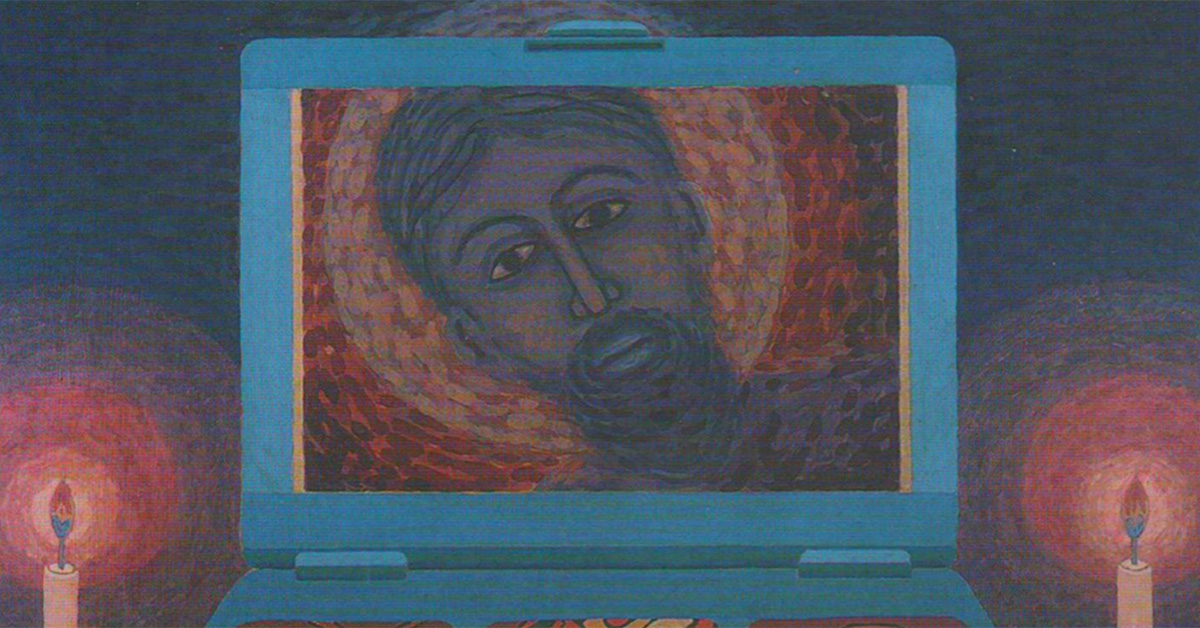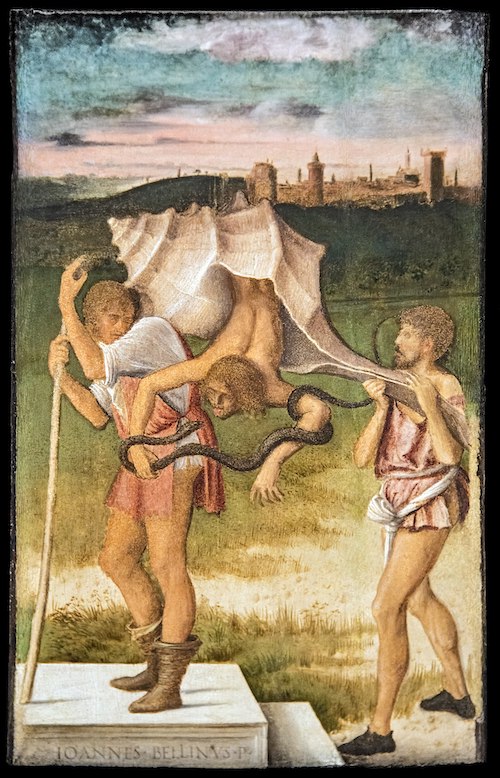

Rev Dr Chris Wright is Global Ambassador and Ministry Director of Langham Partnership (www.langham.org). He is the author of many books including commentaries on Exodus, Deuteronomy, Jeremiah, Lamentations and Ezekiel, and is a Senior Research Fellow of the KLC.
Boris Johnson’s time in No. 10 Downing Street came to an ignominious end in July with his own party and many cabinet members no longer able to tolerate the repeated scandals in which transparency, truth and honesty were prime casualties. His successor, Liz Truss, has declined to say whether she will appoint a new ethics advisor to replace the two who resigned under Johnson, claiming, “I always act with integrity.” Which one might faintly applaud with some mental reservation, “That’s what they all say, including your predecessor.” When our whole public and political culture is increasingly corroded by falsehood and corruption, we need more, not less, of the protection provided by independent scrutiny and accountability.
What does the Bible say about integrity (and the lack of) in public life and the plight of the poor?
O Lord, what is shocking is not the extinction of dinosaurs and other animals; it is the
disappearance of godly men
and women (v. 1).
That is the arresting opening line of Yohanna Katanacho’s meditation on Psalm 12.(1) The psalm itself is equally emphatic in its opening complaint, and sweepingly hyperbolic in scale.
Help, LORD, for no one is faithful anymore;
those who are loyal have
vanished from the human race
(Ps 12:1 NIV).
We might detect an Elijah-complex here, when he thought he was the only faithful Israelite left on the planet and God had to correct his arithmetic with the knowledge of at least 7,000 others who had not succumbed to the ambient idolatry (1 Kgs 19:14, 18). Nevertheless, we resonate with the sentiment: we seem to be drowning in an ocean of untruth, struggling to find a single truth-telling life-saver in the world of public, and especially political, discourse.
For Elijah, the problem was people worshipping false gods. For David the problem was people embracing falsehood itself – which is much the same thing in effect. For as Paul points out in Romans 1, the original sin of humankind is idolatry, and the original trigger was when we chose to believe the serpent’s lie. Lies are the devil’s fingerprints from the dawn of history.

David lamented them in his little kingdom and we now discern them in global ugliness.
2 They utter lies to each other;
with flattering lips and
double heart they speak.
3 May the LORD cut off all flattering lips,
the tongue that makes great boasts,
4 those who say, “With our tongues we will prevail;
our lips are our own – who is our master?” (Ps 12:3–4 NRSV).
Derek Kidner, with his usual trenchant economy, captures the destructive nature of such ingrained habits of speech.
“Empty talk, smooth talk and double talk are here [in v. 2], followed by the boasters, [in vv. 3–4] whose policy sums up that of their fellows: to manipulate the hearer rather than communicate with him. Lies, here, are more accurately “emptiness,” a term which embraces falsehood but also its fringe of the insincere (Ps 4:16) and the irresponsible (Ex 20:7), which cheapen and corrode all human intercourse. Flattering talk is literally “smooth”: all the deadlier for the pleasure it gives and the addiction it creates (Isa 30:10) … A double heart … significantly traces the double talk to its source in “double think” – for the deceiver becomes one of his own victims, with no truth to unite his character.”(2)

Could one find a more depressingly accurate portrayal of the world of political speech, which, in recent years has become a relentless war on truth, along with narcissistic and idolatrous boasting and exaggeration? Even Kidner’s last sentence stings with acute perceptiveness, for it does indeed appear that some of our political leaders are virtually compelled to believe the falsehoods that their incessant propaganda puts forth, even while knowing “inside” that they cannot be true, and having that pointed out repeatedly. Such intentional embrace of duplicity and dissimulation must wreak havoc with anyone’s character. “With no truth to unite,” what hope is there for any meaningful integrity? David realises this connection elsewhere: “I will walk in thy truth: unite my heart to fear thy name” (Ps 86:11 KJV). The determination and the prayer are integrally essential to each other.
Lies come in all sizes. On the one hand, we confront various incarnations of the Big Lie. Propagandists of all tyrannies have known that if you tell a big lie (the bigger the better) often enough and for long enough, people just come to believe it – and act upon it with devastating results, as the Second World War demonstrated.
It is astonishing to learn that around a third of US citizens believe the 2020 election was fraudulently stolen, no matter what the courts and all reputable observers have affirmed. And the divisive and corrupting effect of this big lie on American politics for years ahead is frightening. It is, I suppose, some relief to learn that Alex Jones, one of the most egregious peddlers of conspiracy theories, was fined massively for his cruel lies about the Sandy Hook massacre being a hoax. But the power and pervasiveness of such conspiracy theories, and the jaw-dropping propensity of so many people to assert them, and of social media to propagate them, is mind-boggling. The old adage that a lie can circle the globe while truth is getting its boots on has never been more apt. The devil capitalises on it.
On the other hand, there is the corrosive cumulative effect of habitual smaller scale lying. At first we were shocked by the daily falsehoods and exaggerations from the mouth and tweets of Donald Trump, the “alternative facts” and “fake news.” But by the time they were being recorded in tens of thousands, “post-truth” politics was being shrugged off as numbingly normal. There is little doubt that the repeated falsehoods about the European Union that Boris Johnson concocted as a journalist over many years as a kind of trademark jocularity were one contributory factor to the mood that swung the Brexit referendum, while the Leave campaign itself included blatant lies that were exposed but never retracted. Johnson had been previously sacked twice for lying, but this proved no obstacle to a “successful” political rise (which says something very sad and sick about our politics). Indeed, the phrase used to justify his party’s selection of him as leader and the country to elect him Prime Minister, was that this characteristic mendacity was knowingly “priced in” – a price worth paying to win an election, until it became a price too high, and his repeated evasions and excuses could no longer be tolerated even by those who elevated him.

Coming back to the Old Testament, it is striking how passionate the God of Israel is about truth and integrity in public life and how their opposites arouse his wrath. The ninth commandment prohibits not only lying in general, but specifically false testimony that corrupts judicial integrity (Ex 20:16). The severe penalty for perjury would have been a major deterrent (Deut 19:16–21). If only the aspirations of David in Psalm 101 had characterized the governments of Israel in the following centuries (if only they could be true of our own political leaders today …). Sadly, the prophets witnessed a nation in which political lying was not only shamelessly practised, but shallowly popular. Isaiah saw a people who crooned to the prophets, “Do not prophesy of what is right; speak to us smooth things, prophesy illusions” (Isa 30:10). Jeremiah complained not only about a whole culture of lying in public discourse (Jer 9:3–6), not only about a ruling class that had lost all shame and even the ability to blush (Jer 6:13–15), but tellingly about a populace that was content to be lied to: “The prophets prophesy lies … and my people love it this way” (Jer 5:31; my italics) – a diagnosis that might have been written for electoral politics in my own country today. The smirking photo-op soundbite that seems to say, “I know I’m lying, and you know I’m lying, and I know that you know I’m lying. But I don’t care, because you don’t either.” Collusion in deceiving – active and passive – betrays an advanced stage of terminal cultural decay.

Meanwhile, the poorest in society suffer for the idolatry, injustice, folly, and profiteering of the greedy and powerful. And sometimes, as Psalm 12 recognizes, there will be little or no help from human capacities. Only God can and must act, for which the psalmist bids us pray – especially as the cost-of-living crisis impacts swathes of the population and many of our Christian sisters and brothers. Arise, O Lord, as you promise.
“Because the poor are plundered and the needy groan,
I will now arise,” says the LORD.
“I will protect them from those who malign them.”
You, LORD, will keep the needy safe
and will protect us forever from the wicked,
who freely strut about
when what is vile is honoured by the human race (Ps 12:5, 7–8 NIV).
Calvin reputedly said, “When God puts a nation under judgement, he gives them wicked rulers.”(3) By that yardstick, the lessons of Old Testament Israel, where God’s judgement on his increasingly depraved people took the form of increasingly demented rulers leading the nation into a reality-denying downward vortex into exile, are playing out again in modern Western cultures where the symptoms of divine judgement portrayed in Romans 1:28–32 are all too evident.
The lesson of the Old Testament also, of course, is that beyond judgement lay redemptive hope – as we know it still does for our world too. But whether it will come in some longed-for return to truth and integrity in this earthly body politic, or only in the glorious new creation that will have no place for “all liars … and everyone who loves and practises falsehood” (Rev 21:8, 22:15) – only God knows.

The Kirby Laing Centre for Public Theology in Cambridge. Charity registered in England and Wales. Charity Number: 1191741
Kirby Laing Centre, Office 1, Unit 6, The New Mill House, Chesterton Mill, French’s Road, Cambridge, CB4 3NP
© 2025 The Kirby Laing Centre for Public Theology in Cambridge